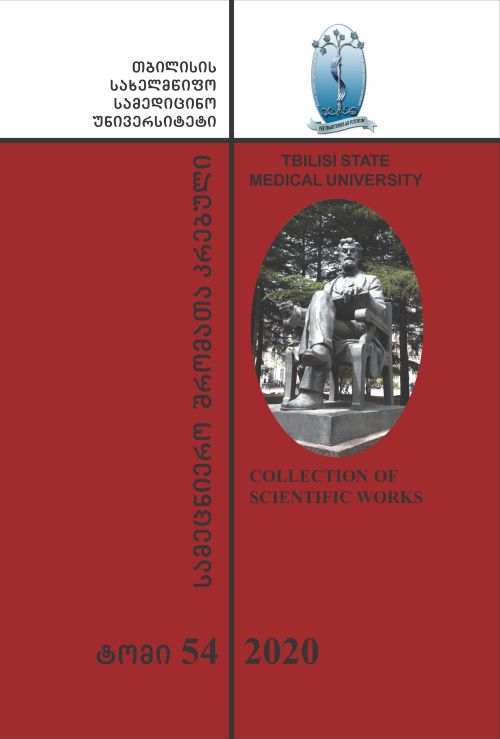Abstract
Gastric cancer is one of the most frequent causes of cancer-related mortality worldwide. Surgical resection after neoadjuvant chemotherapy in primary locally extended cases remains the mainstay for treating patients suffering from this disease. However, surgery is limited by various factors: impaired general status, severe concomitant diseases, and distant metastases.
References
Li JH, Zhang SW, Liu J, Shao MZ, Chen L. Review of clinical investigation on recurrence of gastric cancer following curative resection. Chin Med J (Engl). 2012 Apr;125(8): 1479-95.
Ljung R, Drefahl S, Andersson G, Lagergren J. Sociodemographic and geographical factors in esophageal and gastric cancer mortality in sweden. PLoS One. 2013 Apr 18;8(4):e62067.
Bostanci EB, Ozer I, Ercan M, et al. A Prospective Observational Study of 468 Patients Undergoing D2 or D3Lymphadenectomy for Gastric Cancer. Hepatogastroenterology. 2013 May 1;60(123).
Dong X, Wang G, Zhang G, Ni Z, Suo J, Cui J, Cui A, Yang Q, Xu Y, Li F. The endothelial lipase protein is promising urinary biomarker for diagnosis of gastric cancer. Diagn Pathol. 2013 Mar 19;8:45.
Mohri Y, Tanaka K, Ohi M, et al. Inflammation-based prognostic score as a predictor of postoperative gastric cancer recurrence. Anticancer Res. 2012 Oct;32(10):4581-4.
Yan Z, Xiong Y, Xu W, et al. Identification of recurrence-related genes by integrating microRNA and gene expression profiling of gastric cancer. Int J Oncol. 2012 Dec;41(6):2166-74.
Wang YY, Li L, Zhao ZS, Wang HJ. Clinical utility of measuring expression levels of KAP1, TIMP1 and STC2 in peripheral blood of patients with gastric cancer. World J Surg Oncol. 2013 Apr 2;11:81.
Hartgrink HH, Jansen EP, van Grieken NC, van de Velde CJ. Gastric cancer. Lancet. 2009 Aug; 374(9688):477-90.
Songun I, Putter H, Kranenbarg EM, Sasako M, van de Velde CJ. Surgical treatment of gastric cancer: 15-year follow-up results of the randomized nationwide Dutch D1D2 trial. Lancet Oncol. 2010 May;11(5):439-49.
Degiuli, M., et al., Survival results of a multicentre phase II study to evaluate D2 gastrectomy for gastric cancer. Br J Cancer, 2004. 90(9): p. 1727-32.
Cunningham, D., et al., Perioperative chemotherapy versus surgery alone for resectable gastroesophageal cancer. N Engl J Med, 2006. 355(1): p. 11-20.
Sugarbaker, P.H., et al., Rationale for integrating early postoperative intraperitoneal chemotherapy into the surgical treatment of gastrointestinal cancer. Semin Oncol, 1989. 16(4 Suppl 6): p. 83-97.
Kitayama J. Intraperitoneal chemotherapy against peritoneal carcinomatosis: Current status and future perspective. Surg Oncol. 2014 Jun;23(2):99-10617.
Canbay E, Mizumoto A, Ichinose M, et al. Outcome data of patients with peritoneal carcinomatosis from gastric origin treated by a strategy of bidirectional chemotherapy prior to cytoreductive surgery and hyperthermic intraperitoneal chemotherapy in a single specialized center in Japan. Ann Surg Oncol. 2014 Apr;21(4):1147-52.
Yu, W., et al., Indications for early postoperative intraperitoneal chemotherapy of advanced gastric cancer: results of a prospective randomized trial. World J Surg, 2001. 25(8): p. 985-90.
Fujimoto, S., et al., Successful intraperitoneal hyperthermic chemoperfusion for the prevention of postoperative peritoneal recurrence in patients with advanced gastric carcinoma. Cancer, 1999. 85(3): p. 529-34.
Yonemura, Y., et al., Intraoperative chemohyperthermic peritoneal perfusion as an adjuvant to gastric cancer: final results of a randomized controlled study. Hepatogas- troenterology, 2001. 48(42): p. 1776-82.
